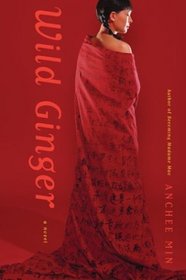Helpful Score: 1
The main character, Wild Ginger, is shunned and bullied because she inherited "foreign looks" from her half French father. She befriends Maple, a girl who is bullied because her family consists of teachers who were not considered "working class" enough to be fully accepted by this new regime. Together, they navigate life during the Cultural Revolution in China, taking very different paths at times, though they can never fully separate their lives from each other. Things become very interesting when Evergreen, a slightly older boy, is introduced into the story. What's scary about this book (and about the reality this story is based on) is how brainwashed individuals can become to the point of excluding any other thoughts and rejecting outright any ideas that go against the set ideals they have entrenched in their minds. The mob mentality, seen several times in this book, also shows a horrific side to humanity when the individual is lost. Although I enjoyed this book, it did temporarily lose me in a few places where the author failed to note a change of scene or a time change. Otherwise, I would certainly recommend this book if you are looking for a quick, but thought-provoking read.
The madness of the Chinese Cultural Revolution really comes to life, and vividly, in this evocative novella. The love triangle of the three main characters - the narrator, Maple, her best friend from elementary school, the beautiful Wild Ginger, and Evergreen, the man they both love - is a bit stilted and formal, however, the horror show that was daily life under that regime is engrossing and skillfully told. Due to having a French father and non-Chinese hazel eyes, Wild Ginger is branded a reactionary, and spends the rest of her short life overcompensating by obsessively quoting Chairman Mao and generally out-Mao'isting the most ardent, fanatic Maoists and Red Guard of the day. One of my favorite scenes occurred about halfway in when Maple's entire neighborhood is forced to devote a week to learning a group song and dance of "loyalty" to Chairman Mao. The mothers vaguely wave their arms back and forth, pretending to learn to dance, while slyly sharing tips on how to survive the impending food shortage - and there's a remarkable ease and charm to the writing that I just loved.




